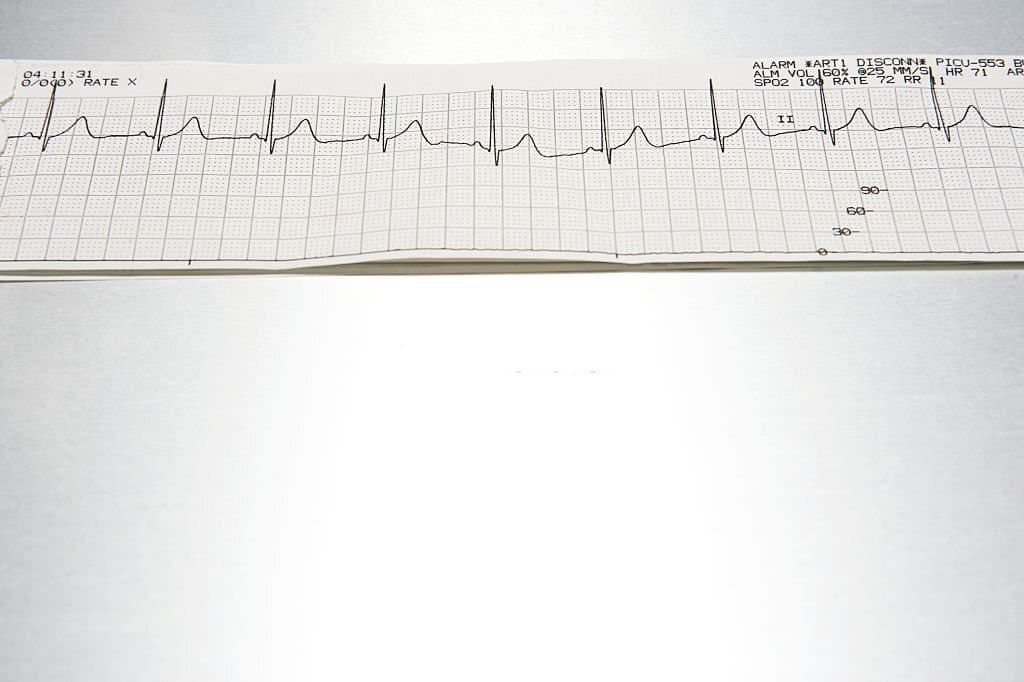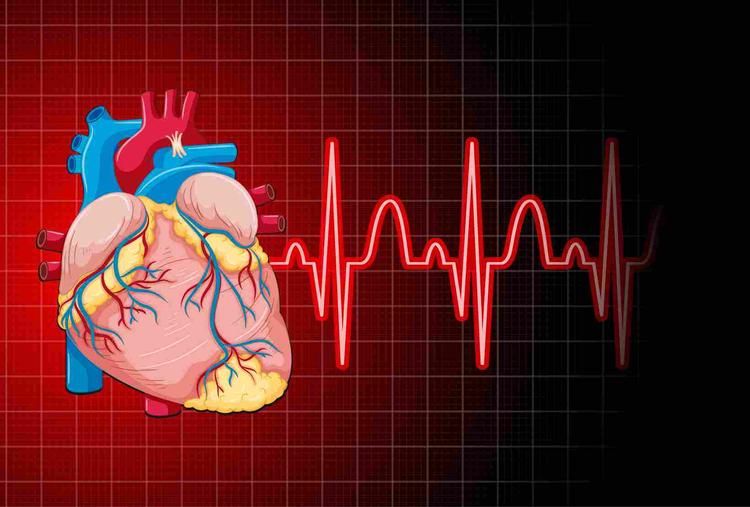Echo Test: why is it done, ecg vs. echocardiography, results and more

Medically Reviewed By
Dr Divya Rohra
Written By Prekshi Garg
on Mar 13, 2022
Last Edit Made By Prekshi Garg
on Mar 18, 2024

The echocardiogram or the echo test uses sound waves to prepare images of your heart that can help visualize the beating of the heart and pumping of the blood by the heart. People generally get confused between echocardiograms and electrocardiograms. Therefore, this article reads about the clear difference between the two tests, cases where an echo test is suggested, and how to interpret the results of the echo test.

In this Article
Why is the Echo test done?
Doctors recommend an echo test to look at the structure of your heart and evaluate how well your heart is functioning. The Echo test is done for the diagnosis of the following conditions:
- Issue related to the large blood vessels that enter or leave the heart
- Issues related to the pericardium, that is, the outer lining of the heart
- Presence of any holes between the chambers
- Presence of blood clots in the chambers
- Monitoring the heart disease over time
The major parameters that are evaluated in the test include:
- Shape and size of your heart
- Movement of your heart and heart walls
- The thickness of heart walls
- Pumping strength of heart
- Working of the heart valves
- Leakage of the blood through your heart valves
- Narrowing of the heart valve
- Infectious growth or tumor around the heart valves
What is the difference between ECG and echocardiography?
Electrocardiograms and echocardiograms can often be confusing because of the similar words and the testing of the same organ. Electrocardiogram (ECG) and echocardiogram are important diagnostic tests for heart diseases. The echocardiogram test is an ultrasound that provides information regarding the structure and function of the heart with the help of moving pictures. The electrocardiogram is a tracking test that traces the rhythm of the heart. Both these tests are complementary to each other and are often used in conjunction.
How to interpret the results of echocardiography?
The echo test gives the value of ejection fraction, that is, blood pumped from the ventricles after each heartbeat as its result. The normal values of ejection fraction are tabulated below:
| S.No. | Ejection Fraction | Inference |
| 1. | 50% - 70% | Normal |
| 2. | 40% - 49% | borderline |
| 3. | < 40% | Low |
| 4. | > 70% | High |
The reports from an Echo test can give an insight into some major information. These results of an echocardiogram include
- Echocardiograms can effectively determine any changes in the size of the heart caused due to the thickening of the walls of the heart or the enlargement of the chambers of the heart. The main reasons that can cause changes in the size of the heart include high blood pressure, damaged or weakened heart valves.
- The echo report also gives the percentage of ejection fraction and the cardiac output (that is, the blood pumped in one minute). A heart with inadequate pumping strength can cause heart failure.
- With the help of echocardiograms, doctors can also identify any damages caused to the muscles of the heart that can affect the normal pumping of the heart.
- An echocardiogram can also suggest whether or not your heart valves open wide and close completely to prevent any leakage of the blood.
- An echocardiogram can also identify abnormal connections between the major blood vessels and the heart, issues related to the heart chambers, and any defects in the heart present at birth.
Takeaway:
The echocardiogram is an important and safe heart test that can give deep insight into the heart's current condition. It helps the cardiologists in planning your future heart treatment. Now that you have in-depth knowledge about the echo test, the cases that require an echo test, the meaning of different results obtained from an echo test, and the major difference between the echo test and the ECG test.
Frequently Asked Questions (FAQs)
-
Which is a more accurate test, ECG test or Echo test?
For determining the structure and function of the heart, an echo test is considered more accurate. This is because ECG gives a hint for any possible health condition, whereas echo test gives information about the functions of the heart valve.
-
How much can an echo test cost in India?
The cost of an echo test in India is approximately Rs 1750/- in different parts of the country.
-
Should the echo test be done empty stomach?
No, there is no need for you to stay empty stomach on the day of the test. You can eat and drink, normally as you do during the rest of your days.
Leave a comment
1 Comments
Victoria Addington
Sep 7, 2023 at 7:57 PM.
It was interesting to know that an echocardiogram provides deep insight into the heart’s current condition. My friend wants to ensure his heart's condition. I should advise him to turn to an echocardiography to obtain reliable results.
Myhealth Team
Sep 8, 2023 at 6:29 AM.
Absolutely, I understand. You can advise your friend to consider an echocardiogram for a comprehensive assessment of their heart's condition.



